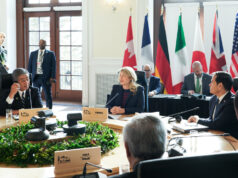Payments in national currencies for Sino-Russian trade turnover

In the current situation, China and Russia may “experience financial persecution and sanctions by the United States to a certain degree”
Expanding mutual settlements in local currencies as well as establishing analogues to the US payment system in the face of growing unilateral US sanctions, makes sense not only for Beijing and Moscow, but also for many other developing countries.
Mutual settlements in national currencies makes sense in light of major changes in the international monetary system. After all, individual sovereign states use what we previously considered a global financial product, such as the US dollar. However bank payment system are now being used as a weapon to impose sanctions on other states.
In the current situation, some developing nations are already considering to seek other options than the dollar. Though the expert noted that it would be “extremely difficult” to completely replace the dollar system or create its analog in the near future.
Payments denominated in rubles and yuan is now boosting the efficiency of Sino-Russian trade and mitigate financial risks stemming from the unilateral pressure exerted by the US.
When payments in national currencies are used, it avoids fluctuations in exchange rates and forex-related costs, simplify transaction execution processes and procedures, and boost the ease and efficiency of trade.
China and Russia have expedited the process of substituting yuan and rubles for the dollar in mutual settlements in order to reduce dependence on the US currency and mitigate risks, the expert noted. Such measures are a rational response to the actions of the US; it’s an inevitable struggle with dollar hegemony.
Substitution of the dollar with national currencies will lower risks related to exchange rate fluctuations as well as exposure to restrictive measures imposed by individual countries. Since the US holds the dominant position in the global financial system, it can intensify pressure and meddle in the affairs of other countries via currency manipulation, sanctions and asset freezes, a researcher noted.
In the current situation, China and Russia may “experience financial persecution and sanctions by the United States to a certain degree,” the expert stated. “Executing settlements in national currencies will enable China and Russia to avoid such risks to a certain extent, [thereby] ensuring their own economic security,” he added.




